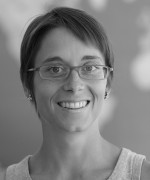
Michaela Potancokova
IIASA
About
Michaela Potancokova is a demographer with research interests in multidimensional demography, population projections, and migration. She first joined the former IIASA World Population Program as a research scholar in June 2012 and returned to the institute as a research scholar in the Multidimensional Demographic Modeling Research Group of the IIASA Population and Just Societies Program in January 2020, after having worked for three years at the European Commission’s Joint Research Centre in Ispra, Italy.
Her current research focuses on migration, global human capital, and population change, as well as religious demography. She has been leading work packages in several Horizon 2020 and Horizon Europe projects, contributing expertise in demographic modeling and analysis. She has worked on numerous research projects, including with the Pew Research Centre’s Forum on Religion and Public Life in Washington, DC, and Horizon Europe projects exploring the demographic and labor force impacts of migration, QuantMig, PREMIUM_EU, and Link4Skills. Potancokova earned her PhD from Charles University in Prague in the Czech Republic in 2009. During her doctoral studies, she took part in the 2004/2005 Winter Semester Program at the International Max Planck Research School for Demography in Rostock, Germany, and in 2005 she received an RTN stipend at the Population Research Centre at the University of Groningen, The Netherlands. Prior to joining IIASA she worked as a demographer in the Demographic Research Centre in Bratislava, Slovakia
Areas of Expertise
- Multistate demography
- Demography of religion
- Differentials in fertility
- International migration
- Data harmonization & survey data analysis
Curriculum Vitae
Contact
Affiliation: IIASA
Other Resources
The Wittgenstein Centre aspires to be a world leader in the advancement of demographic methods and their application to the analysis of human capital and population dynamics. In assessing the effects of these forces on long-term human well-being, we combine scientific excellence in a multidisciplinary context with relevance to a global audience. It is a collaboration among the Austrian Academy of Sciences (ÖAW), the International Institute for Applied Systems Analysis (IIASA) and the University of Vienna.
